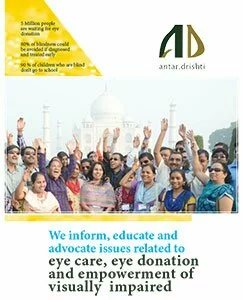An IUPUI researcher hopes to help people who are blind or visually impaired navigate the Internet more efficiently and gain greater knowledge, support, and instruction.
Davide Bolchini and the members of his research team in the School of Informatics and Computing are working in his IUPUI laboratory to fulfill several exciting projects in this area, including a National Science Foundation-funded grant called “Navigating the Aural Web.”
“We’re trying to see if we can help people facing those challenges to experience and enjoy the web, to navigate it much more quickly and effectively,” said Bolchini, who believes the focus should be on making a user’s experience on computers and on the web as productive as possible.
That’s a big reason why Bolchini, associate professor and chair of the school’s Human-Centered Computing department, considers this the best time to explore a new universe of possibilities. Students, he added, seem to share that enthusiasm, if only because human-computer interaction is empowering students in ways many other fields cannot.
Human-computer interaction “gives students the opportunity to invent their future, to figure out ways to address key problems that shape how we interact and will interact with information technology,” Bolchini said. “Our students understand that they can combine science with technology to make a difference in their world.”
He called his field “an intersection of computer science, behavioral science, and computer design, with elements of other fields” — such as the social sciences — thrown in for good measure.
The knowledge researchers like Bolchini pursue could lead to new ways of interacting with technologies such as using hand gestures to interact with large displays (10 times larger than a large TV), enabling the blind to navigate a website more quickly, or creating pathways that could help people make better use of the Internet.
What makes human-computer interaction research so unique is that it focuses on humans and machines working together, Bolchini said. It explores the different ways people interact with computers, including hand gestures, gazes or voice instructions.
“That is the way we communicate with one another,” Bolchini said. “Why not leverage this to communicate better with computers?”
The recognition that Bolchini has drawn through NSF grants and a recent Google Faculty Research Award to support his investigations is a big reason that he is considered one of IUPUI’s Translating Research Into Practice scholars.
It doesn’t hurt that his work opens new doors to research and career options as well; the growing focus on user experience research and design makes students in that field popular with potential employers.
“That’s what we keep our eye on: the real world, the technology companies in Indiana and beyond that create career pipelines for our students,” Bolchini said. “Our goal is to find the new jobs of tomorrow and five years from now.”
The growing emphasis on targeted research — especially on user experience — is making a difference for the School of Informatics and Computing too.
“It’s a big reason why companies like ExactTarget and Yahoo and others are extremely interested in students who are skilled in user experience,” Bolchini said. “The fact that our students find great jobs is proof that our program, our faculty and our courses make a difference in the world and help our students excel. It’s a great time to be a student in the field.”
Source

 We at Antardrishti (www.antardrishti.org) inform, educate and advocate issues related to eye care, eye donation and empowerment of visually impaired (Profile attached) looking for fund in terms of donation/ sponsorship/ venture fund/ partnership/ investment etc… to expend our activities.
We at Antardrishti (www.antardrishti.org) inform, educate and advocate issues related to eye care, eye donation and empowerment of visually impaired (Profile attached) looking for fund in terms of donation/ sponsorship/ venture fund/ partnership/ investment etc… to expend our activities.